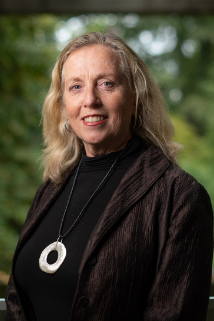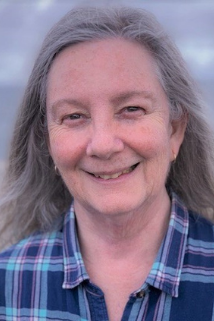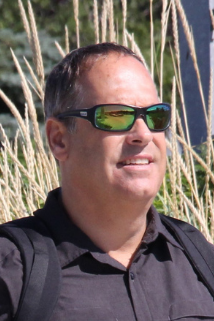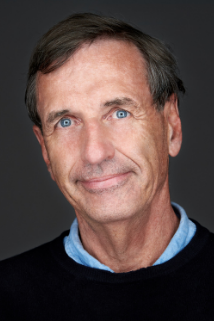Climate Adaptation
Ìý
Panel Discussion
Briefing Note
Ìý
This event took place on Thursday March 4, 2021
Ìý
Presented by the MacEachen Institute and the .
With over 13,000 km of coastline and more than 70% of the population living within 20 km of the coast, Nova Scotia’s population, infrastructure, cultural heritage, and economy are highly vulnerable to sea-level rise, flooding, hurricanes, and storm surges. This extreme weather is becoming more frequent and intense due to climate change.
How should the province adapt to this new reality and how should communities increase their resiliency to withstand these disasters? What are some ecological, financial, governance, and disaster resilience perspectives?
HÂþ» the Speakers
Robin Cox
 Dr. Robin Cox advances leadership in climate and disaster resilience. Drawing on design thinking and open-learning approaches, Cox is cultivating climate action leadership through an innovative open-learning master program, the M.A. in Climate Action Leadership (RRU). As the Director of the ResilienceByDesign lab (RbD) at Royal Roads University, she designs and oversees a diverse applied research agenda focused on building leadership for climate action and disaster risk reduction.Ìý
Dr. Robin Cox advances leadership in climate and disaster resilience. Drawing on design thinking and open-learning approaches, Cox is cultivating climate action leadership through an innovative open-learning master program, the M.A. in Climate Action Leadership (RRU). As the Director of the ResilienceByDesign lab (RbD) at Royal Roads University, she designs and oversees a diverse applied research agenda focused on building leadership for climate action and disaster risk reduction.Ìý
Cox is currently directing the $2M Adaptation Learning Network to increase leadership and capacity among professionals working on the front lines of climate change across British Columbia; and a Tri-Council grant funded project that will build design thinking skills and action projects with youth and their communities in British Columbia and Puerto Rico.Ìý
As a globally recognized expert, Dr. Cox has authored dozens of peer-reviewed publications, including the forthcoming Climate Adaptation Competency Framework. She speaks frequently at conferences and in the press about the human dimensions of climate change and disasters, and the need to make both resilience and climate action mainstream for a secure future.
Patricia Manuel
 Patricia Manuel is Professor of Planning at HÂþ» University. She also teaches in the Coastal and Marine Management program, Akureyri University and the University Centre of the Westfjords, Iceland. As a geographer and environmental planner focusing on coastal regions, Patricia’s research integrates natural and social systems through policy and plan-making. She explores community-level capacity for climate change adaptation, and governance and planning systems linking land and sea.
Patricia Manuel is Professor of Planning at HÂþ» University. She also teaches in the Coastal and Marine Management program, Akureyri University and the University Centre of the Westfjords, Iceland. As a geographer and environmental planner focusing on coastal regions, Patricia’s research integrates natural and social systems through policy and plan-making. She explores community-level capacity for climate change adaptation, and governance and planning systems linking land and sea.
Patricia serves on national committees seeking to build capacity in climate action, including the Climate Centre for Client ServicesÌýAdvisory Panel (ECCC), theÌýNational Adaptation Assessment Advisory Committee, and (formerly) the National Coastal Assessment Advisory Committee (NRCan).Ìý
Patricia is a member of the Licensed Professional Planners Association of Nova Scotia, the Atlantic Planners Institute, and the Canadian Institute of Planners.Ìý
Rodrigo Menafra (moderator)
 Rodrigo Menafra is the Managing Director at the Marine Environmental Observation, Prediction and Response Network (MEOPAR).Ìý
Rodrigo Menafra is the Managing Director at the Marine Environmental Observation, Prediction and Response Network (MEOPAR).Ìý
Rodrigo is a research management professional with over 20 years of experience in the coastal and ocean management sector. Over this span, he has been involved in the planning and management of numerous multi-years, national/international, multi-disciplinary and multi-partner research and capacity-building projects.Ìý
Rodrigo’s experience includes a broad range of skills in research program management, including a broad range of skills in strategic planning, communications, knowledge mobilization and building of strong, lasting collaborative partnerships across academic, government and private sectors. He holds a Master’s in Marine Management from HÂþ» University and a Bachelor of Science in Marine Biology and Ecology from Florida Institute of Technology. Rodrigo is from Uruguay but has made Nova Scotia his home since 2008.Ìý
Steve Plante
 Steve Plante is a professor at Université du Québec à Rimouski. His research focuses on adaptive governance, resilience, adaptation and community based-management in relation to climate change.ÌýHe studies how participatory governance and resilience can reinforce adaptation capacities of coastal communities.
Steve Plante is a professor at Université du Québec à Rimouski. His research focuses on adaptive governance, resilience, adaptation and community based-management in relation to climate change.ÌýHe studies how participatory governance and resilience can reinforce adaptation capacities of coastal communities.
Dr. Plante has led research projects funded byÌýSSHRC, MEOPAR, Réseau Québec Maritime, Community University Research Alliance, and Quebec-France research.
Dr. Plante is currently the director of the Health of Human Communities research theme for RéseauÌýQuébec Maritime, a member of MEOPAR, and a member of the Intersectional Flood Network of Quebec.
Ìý
Scott Vaughan
 Scott Vaughan is a Senior Fellow at the International Institute for Sustainable Development (IISD), and International Chief Advisor, China Council for International Cooperation on Environment and Development (CCICED).
Scott Vaughan is a Senior Fellow at the International Institute for Sustainable Development (IISD), and International Chief Advisor, China Council for International Cooperation on Environment and Development (CCICED).
Previously, he has been IISD President and CEO and Chair of the IISD Experimental Lakes Area (IISD-ELA); Canada’s federal Commissioner of the Environment and Sustainable Development; Director of the Department of Sustainable Development, Organization of American States (OAS); Visiting Scholar, Carnegie Endowment for International Peace; head of Economics and Trade, NAFTA Environment Commission; and counsellor, World Trade Organization (WTO).ÌýAt UN Environment, he initiated the UNEP Financial Initiative (UNEP FI).Ìý
